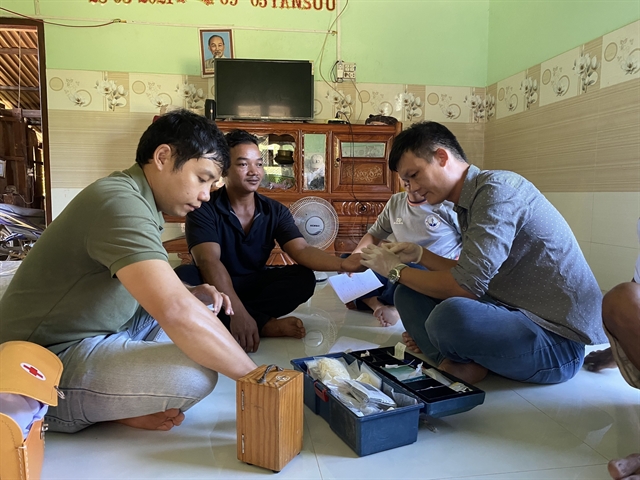 Society
Society

 |
| Health workers collect samples and conduct tests to detect malaria cases in Khánh Thượng Commune, Khánh Vĩnh District, Khánh Hòa Province. — VNA/VNS Photo Phan Thị Sáu |
HÀ NỘI — Despite significant progress in the fight against malaria in Việt Nam, there is still a long way to go before the mosquito-borne disease can be eradicated for good.
Hoàng Đình Cảnh, Head of the National Institute of Malariology, Parasitology and Entomology, told the Government News that Việt Nam reported 448 malaria cases and two fatalities in 2023.
Although 46 provinces and cities have been declared malaria-free, the disease remains difficult to predict. Over 6.8 million people currently reside in malaria-endemic regions, with hotspots in Lai Châu and Khánh Hòa provinces and some parts of the Central Highlands.
In 2023, Khánh Hoà saw 254 malaria cases, accounting for over half of the national total. Most of the cases occurred from June to the end of the year.
In Lai Châu, Mường Tè District alone reported approximately 100 cases, which were predominantly among the La Hủ ethnic group.
Over the past few weeks, Khánh Hòa continues to record between four to six cases per week, primarily concentrated in Khánh Vĩnh District.
Cảnh believes that the surge in malaria cases in these regions can be attributed to the lack of awareness among forest-goers and farmers who expose themselves to mosquito bites without proper protection.
In Khánh Phú Village, health authorities could only reach out to approximately 70 per cent of forest-goers and farmers. The rest remains elusive for screening measures and awareness campaigns.
"When a new case is detected, health authorities investigate, cordon off the surrounding area for insecticide spraying and conduct awareness campaigns," Cảnh said.
"However, many people work in forests and rice fields, making it difficult to reach them and keep them informed."
Currently, a malaria vaccine is available only in Africa, with an efficacy rate of about 65 per cent. In Việt Nam, effective antimalarial drugs are provided free of charge through the Global Fund.
To achieve malaria elimination by 2030, a stringent criterion of three consecutive years without a single case must be met, starting from the commune level and progressing to the district and provincial levels.
With only six years remaining, the challenges are daunting.
Cảnh calls for more intensive measures and resources and sustained commitment from all levels and sectors to strengthen national malaria, parasitic disease and vector control programmes.
Some measures include intensifying interventions in malaria hotspots, maintaining surveillance in malaria-free areas, expanding the coverage of parasitic disease and vector control activities, enhancing health workers' capabilities and raising funds for malaria control programmes. — VNS




